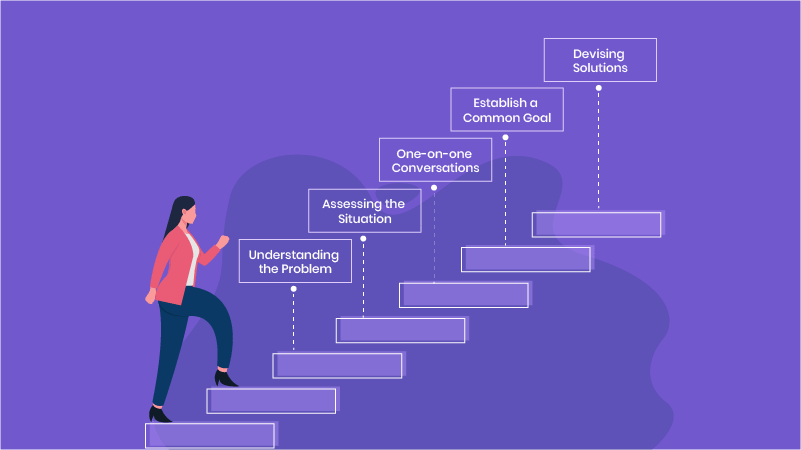Last Updated on October 30, 2022 by Editors Desk
Main highlights:
- What is Emotional intelligence?
- Why is being self-aware important?
- How is emotional intelligence linked to interpersonal relationships?
- Need for clear communication.
Introduction
I don’t know about you, but I definitely have my fair share of experiences with people. The sad truth is that not all of them were pleasant ones. But as we’ve grown up and matured, many of us have learned how to better handle our emotions and deal with the difficult situations that arise in our everyday lives. One such skill is emotional intelligence (Ei), which can be defined as the ability to identify, understand, and manage emotions. This knowledge helps us process information more effectively—it’s one reason why being able to understand others’ feelings is so important when dealing with conflict or even simply making a new friend at work!
Here are some powerful ways Emotional intelligence can help improve your relationships:

Become more self-aware
- To be able to manage your emotions, you must become self-aware of them.
- Self-awareness is the ability to understand your own emotions, thoughts and behaviors.
- This skill helps you recognize how your actions affect others and can help create healthy relationships with them.
Practice managing your emotions
- Recognize your emotions.
- Understand the causes of your emotions.
- Use emotional intelligence to manage your emotions, and use strategies that help you manage them effectively. For example:
- Stop and think about what’s going on in the situation before reacting; this will allow you to make a more informed decision about how best to respond rather than just reacting impulsively or defensively out of anger or frustration.
- Take deep breaths before speaking (this helps calm down), speak slowly and clearly so that people understand what you mean (and don’t expect others’ understanding), listen carefully before responding (to ensure that they really heard everything), ask questions rather than giving answers unless they’re asked first (so as not interrupt someone else’s conversation).
Motivate yourself
You can motivate yourself by setting goals and deadlines for your work.
You can also motivate yourself by rewarding yourself for reaching a goal.
You can also be motivated by being accountable to someone else, who will keep you on track with their expectations and feedback so that you are held accountable for meeting those expectations.
Build self-confidence
Self-confidence is a key factor in building effective interpersonal relationships. A person who is self-confident will be able to control their emotions, which helps them deal with other people’s emotions more effectively.
Self-confidence comes from being able to control your emotions and being able to manage them effectively. The ability to manage your own emotions gives you the power to deal with situations that may be difficult or embarrassing because when you are calm and composed, others will respond positively toward you.
Develop your emotional intelligence

If you are a person who is interested in learning more about emotional intelligence, there are many books and courses available. However, if you want to develop your emotional intelligence skills but do not know where to start, then I recommend reading this article as it will provide some helpful tips on how to start developing your own personal emotional intelligence.
Below are some steps that can help improve the way people with low levels of emotional intelligence interact with others:
- Self-awareness – This means knowing when something feels wrong or out of place so that they can react appropriately without causing problems for themselves or others around them
- Self-management – This means being able to manage emotions rather than let them control one’s actions at times such as when angry or frustrated
Communicate clearly
When communicating with others, it is important to keep your message simple and clear. Avoid jargon and use plain language. If you want to express yourself clearly, try using body language as well. By doing so, you can help people understand what you are trying to say better than if they were just reading a text message or email from you.
Learn how to resolve conflict

- Learn how to resolve conflict.
- Don’t take things personally.
- Don’t get defensive.
- Don’t argue.
- Don’t blame others for your problems, instead, look at the situation objectively and ask yourself what you could do differently or better next time around to prevent these issues from occurring again in the future.
Make assumptions about someone’s motives when they behave in a way that makes you uncomfortable—for example, if someone is acting out of character or being rude towards you on purpose (you know this person). There may be a good reason why they’re doing this, so don’t jump straight into assuming it’s because they want something from you! Ask yourself if there are any other explanations before deciding whether or not their behavior is intentional or not; otherwise, just let them be until they feel comfortable explaining themselves fully enough so that both parties understand each other’s perspective fully without feeling hurtful towards either party involved. “
Respond appropriately to criticism and negative feedback
In the workplace, you will be faced with criticism and negative feedback from your colleagues. However, this is not something that should intimidate you. Instead, it’s important to learn how to respond appropriately when faced with criticism or negative feedback in order to maintain a positive relationship between yourself and others. Here are some tips on how to deal with these situations:
- Know your strengths and weaknesses as an individual by taking time each day (or whenever possible) to reflect upon them mentally before speaking with others about them face-to-face or over email communications;
- Be aware of what kind of impression others may have made on them after receiving their initial impressions during meetings/interviews;
- Be aware of any biases they might have that could affect their perception at work (e.g., gender stereotypes).
Emotional intelligence is a useful tool for relationships, both at work and in your personal life.
Emotional intelligence is a useful tool for relationships, both at work and in your personal life. Emotional intelligence is the ability to be aware of your own emotions and those of others and to use this awareness to manage your behavior and relationships.
Emotions can help us navigate difficult situations more effectively than logic alone can. If you’re feeling angry or upset about something that happened at work today, it may help if you could talk through what happened with someone else who has been through similar experiences—perhaps even someone who has been on both sides of the situation (or maybe just one side). If there was no one available when they needed support back then, now might be an excellent time to reach out!
The most important takeaway from all this is that we can all improve our relationships by using emotional intelligence. It’s not just about being able to read someone else’s emotions (although that helps!), but also understanding how your own feelings affect the way others respond to you in a specific situation. With practice, you can become more aware of your own needs and motivations so that you can take action on them before they become problems for others.



